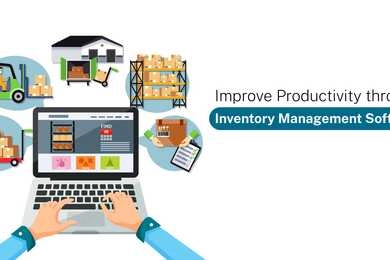One of the key benefits of inventory management software for small businesses is the ability to track inventory levels in real-time. With accurate and up-to-date information about stock levels, small businesses can make informed decisions about purchasing, sales, and reordering. This helps to prevent overstocking and stockouts, which can lead to unnecessary costs and lost sales opportunities.
Another important feature of inventory management software for small businesses is the ability to automate and streamline the purchasing process. By setting up reorder points and automatic reorder triggers, small businesses can ensure that they always have enough stock on hand to meet customer demand without tying up excess capital in inventory. This can help to improve cash flow and reduce carrying costs associated with excess inventory.
Inventory management software also helps small businesses improve their warehouse operations. With features such as barcode scanning and RFID tracking, small businesses can accurately track the movement of inventory within their warehouse, reducing the risk of lost or misplaced inventory. This can help to improve order fulfillment and reduce the likelihood of shipping errors, ultimately leading to higher customer satisfaction and repeat business.
In addition, inventory management software can also help small businesses with forecasting and demand planning. By analyzing historical sales data and trends, small businesses can better predict future demand and adjust their inventory levels accordingly. This can help to reduce the risk of stockouts and ensure that small businesses are always able to meet customer demand, ultimately leading to higher sales and profitability.
Overall, inventory management software is a valuable tool for small businesses looking to improve their inventory management processes. By providing real-time visibility into stock levels, automating purchasing processes, improving warehouse operations, and aiding in demand planning, inventory management software can help small businesses reduce costs, improve cash flow, and ultimately grow their business.

